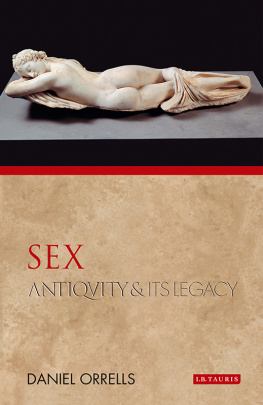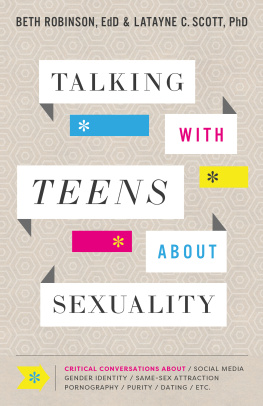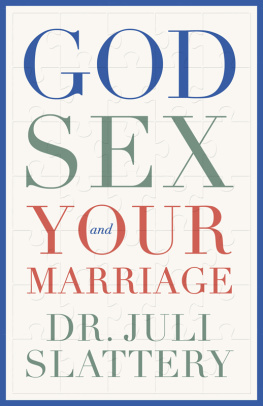ANCIENTS AND MODERNS
General Editor: Phiroze Vasunia, Professor of Greek, University College London
How can antiquity illuminate critical issues in the modern world? How does the ancient world help us address contemporary problems and issues? In what ways do modern insights and theories shed new light on the interpretation of ancient texts, monuments, artefacts and cultures? The central aim of this exciting new series is to show how antiquity is relevant to life today. The series also points towards the ways in which the modern and ancient worlds are mutually connected and interrelated. Lively, engaging, and historically informed, Ancients and Moderns examines key ideas and practices in context. It shows how societies and cultures have been shaped by ideas and debates that recur. With a strong appeal to students and teachers in a variety of disciplines, including classics and ancient history, each book is written for non-specialists in a clear and accessible manner.
THE ART OF THE BODY: ANTIQUITY AND ITS LEGACY MICHAEL SQUIRE
DEATH: ANTIQUITY AND ITS LEGACY MARIO ERASMO
DRAMA: ANTIQUITY AND ITS LEGACY DAVID ROSENBLOOM
GENDER: ANTIQUITY AND ITS LEGACY BROOKE HOLMES
LUCK, FATE AND FORTUNE: ANTIQUITY AND ITS LEGACY ESTHER EIDINOW
MEDICINE: ANTIQUITY AND ITS LEGACY CAROLINE PETIT
POLITICS: ANTIQUITY AND ITS LEGACY KOSTAS VLASSOPOULOS
RACE: ANTIQUITY AND ITS LEGACY DENISE EILEEN McCOSKEY
RELIGION: ANTIQUITY AND ITS LEGACY JRG RPKE
SCIENCE: ANTIQUITY AND ITS LEGACY PHILIPPA LANG
SEX: ANTIQUITY AND ITS LEGACY DANIEL ORRELLS
SLAVERY: ANTIQUITY AND ITS LEGACY PAGE DUBOIS
WAR: ANTIQUITY AND ITS LEGACY ALFRED S. BRADFORD
ISBN: 9781848852006 www.ancientsandmoderns.com
It may seem that physical sex has no history. (The human race does it, and needs to do it, and has always done it.) But actually there is a real need to consider how the very conceptualization of sex itself has changed, with its different boundaries, constructions and anxieties. Daniel Orrells intelligent, coherent and intellectually exciting book offers just such a consideration. He takes the somewhat stagnant debate about ancient sexuality in a wholly new and profitable direction, and in so doing gives the field a real shake-up. Orrells is an excellent scholar and writes with wit and verve. In placing the history of the sexual act alongside the ideology of the body, of the person and of agency, his important but never self-important book has the potential to break out to a very wide readership.
Simon Goldhill, Professor of Greek Literature and Culture, University of Cambridge
This is a spectacular book learned, provocative, witty, highly readable and tightly argued. Daniel Orrells complicates and complements the arguments of Michel Foucaults History of Sexuality, showing that the sexual lives of the Greeks and Romans, however different from our own, are nonetheless central to modern notions of sexuality, sexual identity, and gender expression. Starting in the Renaissance, Orrells demonstrates that the reception of ancient Greek and Roman literature played a key role in the development of the psychoanalytic understanding of sexuality; that classical scholars, poets, and eventually nineteenth-century sexologists turned to the classics for vocabularies and methods of knowing about sex, and of thinking about sex as a form of knowing. This book is immensely informative and delightful to read, presenting complex debates in lucid, playful prose.
Kirk Ormand, Professor of Classics, Oberlin College, author of Controlling Desires: Sexuality in Ancient Greece and Rome
DANIEL ORRELLS is Reader in Classics and Ancient History at the University of Warwick. He is author of Classical Culture and Modern Masculinity (2011), co-editor of African Athena: New Agendas (2011), and author of a number of essays and articles on classical antiquity in modern intellectual history.
Published in 2015 by
I.B.Tauris & Co. Ltd
London New York
www.ibtauris.com
Copyright 2015 Daniel Orrells
The right of Daniel Orrells to be identified as the author of this work has been asserted by the author in accordance with the Copyright, Designs and Patents Act 1988.
All rights reserved. Except for brief quotations in a review, this book, or any part thereof, may not be reproduced, stored in or introduced into a retrieval system, or transmitted, in any form or by any means, electronic, mechanical, photocopying, recording or otherwise, without the prior written permission of the publisher.
References to websites were correct at the time of writing.
ISBN: (HB): 978 1 84885 519 9
ISBN: (PB): 978 1 84885 520 5
eISBN: 978 0 85773 950 6
A full CIP record for this book is available from the British Library
Typeset in Garamond Pro by Ellipsis Digital Limited, Glasgow
ACKNOWLEDGEMENTS
I would like to begin by thanking the two anonymous readers and Phiroze Vasunia, Series Editor, who all ploughed through and fastidiously critiqued an earlier draft of this book, liberally offering their knowledge for my consideration. Audiences at Cambridge, Durham, Oxford and London, and UC Davis and UC Irvine have provided me with further food for thought. These readers and listeners have, I hope, transformed and improved my work. I greatly appreciate the professionalism of Alex Wright and his team at I.B.Tauris. Denise Cowle has been a highly efficient and attentive copy-editor. This book could not have been written without the generosity and intelligence of good friends and interlocutors. Katie Fleming, Annelise Friesenbruch and Miriam Leonard have all been there through the process. I must likewise cite dear companions, Tasha Marhia and Amanda Tidman, as well as Tessa Roynon and Carl Hall, and Alistair Johnston, James Mack and Ben Winyard: thanks for keeping me buoyant, bright and breezy. Thank you also Jayne and Brian Orrells for all your love and support, and Kate Orrells for moving to a new sunnier world, right by Preston Park! To Rohan McCooty: Sagt es niemand, nur den Weisen, weil die Menge gleich verhhnet. Finally, I would like to record my gratitude to and appreciation of Aude Doody, whose warmth and wisdom in life and Latin literature have brought this book to its completion.
The context for much of my writing of this book was Berlin, Germany. I was kindly supported financially by an Alexander von Humboldt Foundation Fellowship, under which scheme I was welcomed to the Winckelmann Institut under the auspices of Professor Luca Giuliani. I was also generously granted research leave by the University of Warwick.
FOREWORD
Ancients and Moderns comes to fruition at a propitious moment: reception studies is flourishing, and the scholarship that has arisen around it is lively, rigorous, and historically informed; it makes us rethink our own understanding of the relationship between past and present. Ancients and Moderns aims to communicate to students and general readers the depth, energy, and excitement of the best work in the field. It seeks to engage, provoke, and stimulate, and to show how, for large parts of the world, Greco-Roman antiquity continues to be relevant to debates in culture, politics, and society.
The series does not merely accept notions such as reception or tradition without question; rather, it treats these concepts as contested categories and calls into question the illusion of an unmediated approach to the ancient world. We have encouraged our authors to take intellectual risks in the development of their ideas. By challenging the assumption of a direct line of continuity between antiquity and modernity, these books explore how discussions in such areas as gender, politics, race, sex, and slavery occur within particular contexts and histories; they demonstrate that no culture is monolithic, that claims to ownership of the past are never pure, and that East and West are often connected together in ways that continue to surprise and disturb many. Thus,





